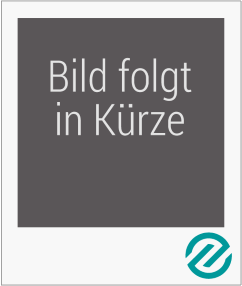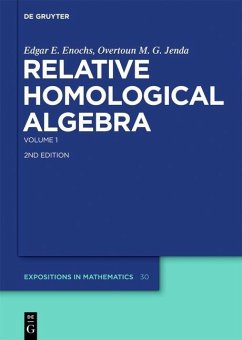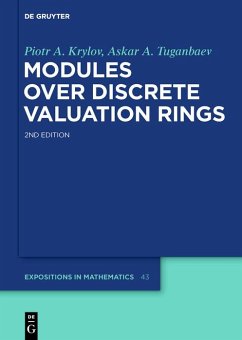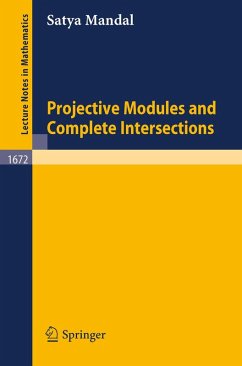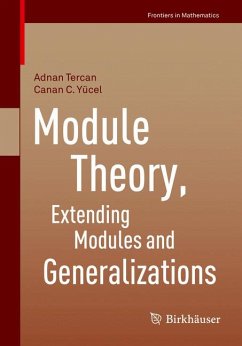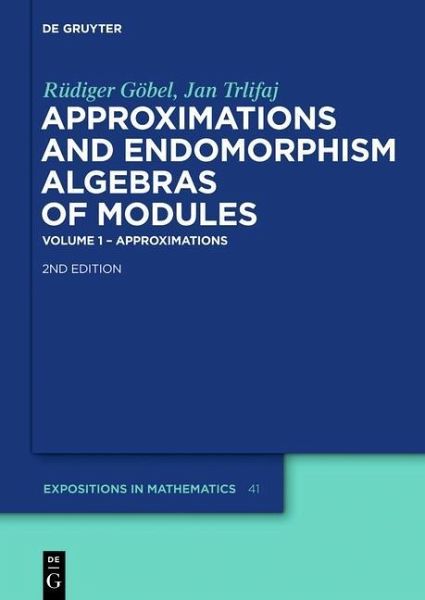
Approximations and Endomorphism Algebras of Modules (eBook, PDF)
Volume 1 - Approximations / Volume 2 - Predictions
Versandkostenfrei!
Sofort per Download lieferbar
278,95 €
inkl. MwSt.
Weitere Ausgaben:

PAYBACK Punkte
139 °P sammeln!
This second, revised and substantially extended edition of Approximations and Endomorphism Algebras of Modules reflects both the depth and the width of recent developments in the area since the first edition appeared in 2006. The new division of the monograph into two volumes roughly corresponds to its two central topics, approximation theory (Volume 1) and realization theorems for modules (Volume 2).It is a widely accepted fact that the category of all modules over a general associative ring is too complex to admit classification. Unless the ring is of finite representation type we must lim...
This second, revised and substantially extended edition of Approximations and Endomorphism Algebras of Modules reflects both the depth and the width of recent developments in the area since the first edition appeared in 2006. The new division of the monograph into two volumes roughly corresponds to its two central topics, approximation theory (Volume 1) and realization theorems for modules (Volume 2).
It is a widely accepted fact that the category of all modules over a general associative ring is too complex to admit classification. Unless the ring is of finite representation type we must limit attempts at classification to some restricted subcategories of modules. The wild character of the category of all modules, or of one of its subcategories C, is often indicated by the presence of a realization theorem, that is, by the fact that any reasonable algebra is isomorphic to the endomorphism algebra of a module from C. This results in the existence of pathological direct sum decompositions, and these are generally viewed as obstacles to classification. In order to overcome this problem, the approximation theory of modules has been developed. The idea here is to select suitable subcategories C whose modules can be classified, and then to approximate arbitrary modules by those from C. These approximations are neither unique nor functorial in general, but there is a rich supply available appropriate to the requirements of various particular applications.
The authors bring the two theories together. The first volume, Approximations, sets the scene in Part I by introducing the main classes of modules relevant here: the S-complete, pure-injective, Mittag-Leffler, and slender modules. Parts II and III of the first volume develop the key methods of approximation theory. Some of the recent applications to the structure of modules are also presented here, notably for tilting, cotilting, Baer, and Mittag-Leffler modules. In the second volume, Predictions, further basic instruments are introduced: the prediction principles, and their applications to proving realization theorems. Moreover, tools are developed there for answering problems motivated in algebraic topology. The authors concentrate on the impossibility of classification for modules over general rings. The wild character of many categories C of modules is documented here by the realization theorems that represent critical R-algebras over commutative rings R as endomorphism algebras of modules from C.
The monograph starts from basic facts and gradually develops the theory towards its present frontiers. It is suitable both for graduate students interested in algebra and for experts in module and representation theory.
Dieser Download kann aus rechtlichen Gründen nur mit Rechnungsadresse in A, B, BG, CY, CZ, D, DK, EW, E, FIN, F, GR, HR, H, IRL, I, LT, L, LR, M, NL, PL, P, R, S, SLO, SK ausgeliefert werden.




